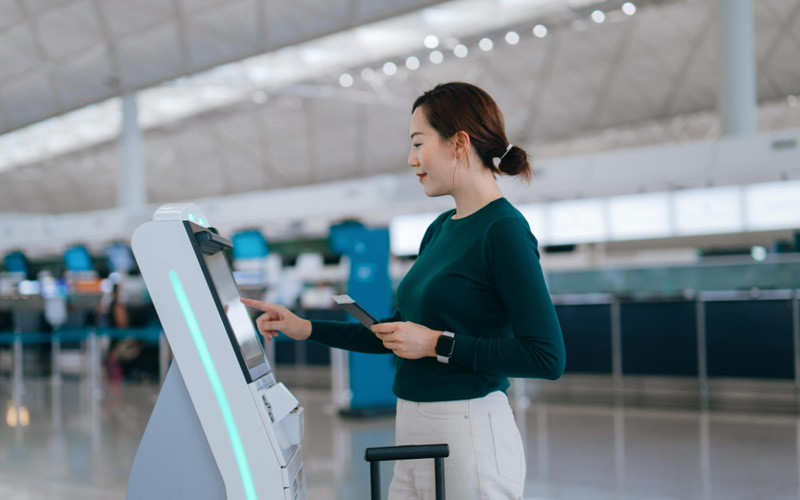Air cargo is the sine qua non of global trade. Facilitating about 33% of the world’s trade by value and transporting over $8 trillion worth of goods annually, air cargo enables the quick delivery of high-quality goods, creates millions of jobs, and contributes to global economic development. Yet, the air cargo industry continues to grapple with challenges that range from economic volatility to operational inefficiencies and resistance to change.
To navigate these troubled skies, air cargo operators need to rethink how to leverage technology – not just for automation but also for intelligence. Automation and Artificial Intelligence (AI), when applied strategically, hold great promise to make air cargo logistics more efficient, accurate, faster, compliance assured, and less expensive.
This blog examines the key challenges faced by air cargo operators today – from operational inefficiencies to Air WayBill (AWB) disputes – and how AI and automation can help overcome these headwinds. With a focus on AI-powered AWB verification, it outlines a practical roadmap for adopting intelligent automation in air freight logistics.
troubled skies: challenges in air freight logistics
The air freight industry faces myriad challenges that dent daily operations and reduce the operational efficiency of cargo delivery across continents:
-
external and environmental disruptions: Air cargo operations remain particularly vulnerable to global disruptions, environmental catastrophes, and the lingering effects of the COVID-19 pandemic on logistics patterns. Such challenges undermine predictability, disrupt supply chains, and increase operational risks — challenges that traditional and partially automated systems can’t handle effectively.
-
operational and process inefficiencies: Reliance on manual workflows coupled with resistance to digital transformations compound the risk of errors and operational inefficiencies. Traditional, non-digital systems that air cargo operators still rely on to manage logistics are often the cause of AWB disputes and rejections, hindering scalability and leading to an increased risk of errors, delayed processing, revenue leakage and possible loss of goodwill.
- strategic and structural barriers: Economic fluctuations, currency volatility, and cybersecurity threats make it difficult for air cargo operators to realise the full value of their technology investments. At the same time, skill gaps in the workforce continue to impede digital transformation initiatives, impacting the long-term resilience of air freight operations.
To overcome these persistent roadblocks, air cargo leaders are increasingly turning to AI and automation, not just to patch inefficiencies, but to reimagine how cargo is moved, managed, and monetized. Let’s dive deeper into how these technologies are being applied strategically.
strategic applications of AI & automation
AI-driven solutions can transform the air cargo technology industry by enhancing efficiency, reliability, and risk management. Key impacts of AI and automation in air cargo logistics and transportation include:
-
cargo rebooking support: From detecting disruptions and analysing delay patterns to confirming new routes and updating bookings in system, automation and AI-powered decision support tools can overhaul the entire cargo booking support process. While human input is still essential to coordinate with stakeholders and get approvals for new routes, automated rebooking systems can handle the bulk of the tasks. This allows human agents to handle higher-value tasks building guiding strategy, aligning intent, and strengthening relationships.
-
predictive analytics and automation: By analysing historical data and market trends, AI-powered predictive analytics accurately forecast cargo demand, helping logistics providers optimise cargo capacity and minimise underutilisation. Combined with automated cargo handling, these technologies can accelerate loading and unloading, minimise errors, reduce turnaround times, and improve the overall efficiency of cargo management.
-
optimised route planning and cost reduction: By analysing factors like weather, fuel efficiency, and air traffic, AI tools can help chart the most efficient flight path, improving delivery times and reducing operation costs. Automation can further reduce operation costs by handling repetitive tasks with minimal human intervention.
- risk management: By monitoring global events, supply chain disruptions, and security threats, AI systems assess potential risks to air freight logistics and enable proactive management strategies such as rerouting shipments and adjusting capacity, thereby minimising delays and ensuring operational continuity.
AWB verification: a flagship use case
Among the most impactful applications of AI and automation in air freight logistics is AWB verification, which addresses longstanding pain points in cargo documentation, dispute resolution, and revenue leakage. Often prone to manual errors and inefficiencies, this function can be significantly improved through intelligent, AI-based solutions. Let’s take a deeper look at it!
manual vs. AI-powered AWB verification process
The AWB is the core document in air cargo as it governs invoicing, tracking, compliance, and dispute management. It is central to invoicing accuracy, dispute prevention, and revenue realisation. Traditional AWB processes are manual, error-prone, and time-consuming, often leading to bottlenecks and revenue loss.
Here’s how AI-powered AWB verification changes the game:
manual AWB verification:
- Relies on manual data entry from scanned documents or e-messages
- Prone to delays, inaccuracies, and invoicing disputes
- Increases operational bottlenecks, compliance risk and slows down operations
AI-powered AWB verification:
Uses a human-in-the-loop model for intelligent processing:
- Automatically extracts fields from diverse input formats (PDFs, images, e-messages)
- Applies business rules to calculate rates
- Reconciles billing with sales data
- Enables human review and approval within a unified interface
The result? A smarter, faster, and more reliable cargo documentation process.
benefits of AI-powered AWB verification process
A robust, automated AWB verification process in airline cargo operations delivers benefits far beyond efficiency:
- improved accuracy and error reduction: Automated AWB verification significantly reduces data errors and inconsistent cargo documentation caused by manual data entry. This not only ensures accuracy across systems but also reduces the risk of shipment delays due to incorrect or incomplete information.
- enhanced operational efficiency: By reducing the need for manual checks, automated AWB speeds up the cargo acceptance process, allowing human agents to focus on exceptions and value-added tasks.
- faster processing and cost savings: Automation and AI-based systems help speed up processing and reduce human errors, thereby minimising costs associated with rework, delays, and penalties. Working round the clock, these systems also reduce operational downtime, which translates to long-term gains.
- enhanced regulatory compliance with IATA: Automated systems ensure AWBs meet IATA guidelines, customs, and security regulations. Additionally, by flagging non-compliant entries in real-time, these automated, AI-based systems ensure businesses avoid fines and penalties and remain aligned with evolving regulations.
- real-time visibility and tracking: AI and automated solutions provide instant feedback on AWB status, which significantly reduces errors and disputes. By generating digital logs of verification steps that improve traceability, they also enhance audit readiness for businesses and allows them to investigate compliance discrepancies with greater ease and accuracy.
- improved scalability for high-volume operations: Intelligent automation systems can support high-volume cargo operations without a proportional increase in staffing. Such solutions can also easily integrate with other digital systems like cargo management platforms and customs portals and support rapid scalability.
- improved customer experience: Automated systems enable faster AWB processing, which lead to quicker cargo movement and fewer disputes. By increasing predictability and reducing delays, such systems foster trust and enhance satisfaction among freight forwarders and shippers.
navigating the AI & automation adoption barriers
While AI and automation have tremendous potential in transforming air cargo logistics, businesses must navigate a few challenges as well. Some key challenges include:
- high upfront investment: Training and deploying AI systems requires substantial upfront costs. These include investments not only for hardware and software but also for infrastructure and training, as well as long-term maintenance of automated systems.
- legacy system integration: Businesses that rely on legacy systems find it complex to integrate and align with AI and automation solutions. Transitioning to these systems also demand new skillsets to maintain control and oversight.
- data security risks: The risk of data breaches and cyber threats increase with the increasing digitalisation of logistics operations. Businesses need to establish robust cybersecurity frameworks and data governance strategies to minimise data vulnerabilities.
To address these, companies must take a phased, strategic approach—investing in secure infrastructure, choosing modular solutions, and prioritizing workforce enablement.
flying higher with AI in air freight logistics
In today’s fast-moving logistics environment, efficiency and resilience aren’t optional—they’re imperative. AI and automation offer air cargo operators a chance to evolve from reactive operations to intelligent ecosystems.
By modernizing key processes like AWB verification, improving cargo management, and enhancing risk response, these technologies unlock tangible benefits in speed, compliance, and customer satisfaction.
But technology is only half the equation. Successful transformation requires a deliberate, human-in-the-loop approach—one that blends intelligent systems with skilled oversight, strategic planning, and agile execution.
A successful digital transformation needs to be deliberate and requires a human-in-the-loop approach, one that blends intelligent systems with skilled oversight, strategic planning, and agile execution. These strategic steps will not only solve the challenges that air freight operators face today but also build a logistics networks that is resilient, efficient, and future-ready.
how Infosys BPM can help
At Infosys BPM, we leverage automation and AI to help airline cargo operators navigate their digital transformation journey. With our AI-powered AWB verification processing solution, booking support, operational analytics, and a host of other services, we focus on delivering scalable, modular solutions that deliver transformation without disruption.
Get in touch with our team!







